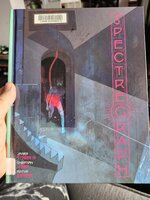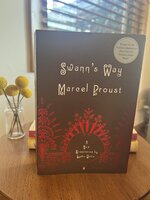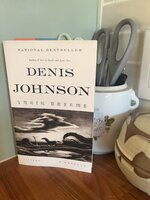Book 6: Babel-17, by Samuel Delaney
View attachment 231720
Delaney’s loomed in my list of to-reads, particularly his dense opus Dhalgren. This is an early novel from him, a Nebula winner considered his first major work. The ideas certainly fall into the category of mid-century progressive sci-fi, where a lot of for-the-time revolutionary ideas come across as a bit retrograde; for example, spaceships in this world must be piloted by three individuals in a throuple. This may be wild to talk of in the 60s but in 2025 I just don’t care about your polycule.
Book 7: The Shadow of the Torturer, by Gene Wolfe
View attachment 231721
Once more on my bullshit, reading the 4-volume Book of the New Sun for the third time, segueing into my second full reading of the 12-volume Solar Cycle.
Book 8: The Story of a New Name (Neapolitan Quartet, Book 2), By Elena Ferrante
View attachment 231722
Here we are, volume 2 of the Neapolitan Quartet. Ferrante’s prose remains deceptively simple and ultimately exceptional. I’m glad I got a hard copy of this one; there are around a dozen families in the community discussed here, and being able to flip to the character list helped keep things straight.
The book starts a bit slowly, then comes to focus on a specific summer, and the story begins to really hum. It’s a subtly affecting book; I caught myself in a bad mood after reading a passage of struggle for our protagonists. I’m impressed by this saga of two “little” lives, and the expansiveness of experience; it’s deeply meaningful but not overly metaphorical.
Book 9: The Law at Randado, by Elmore Leonard
View attachment 231723
I was sick in bed off and on for a week, and wanted something uncomplicated to sink my teeth into. This mid-century tale about a small American West town where the business leaders self-appoint their own judge, jury, and executioner — to circumvent due process and hang cattle rustlers in-town rather than send them to the city — maybe wasn’t as hard a turn from reality as I’d like, but watching the town’s young sheriff deputy hunt down the self-appointed oligarchs was pretty satisfying.



